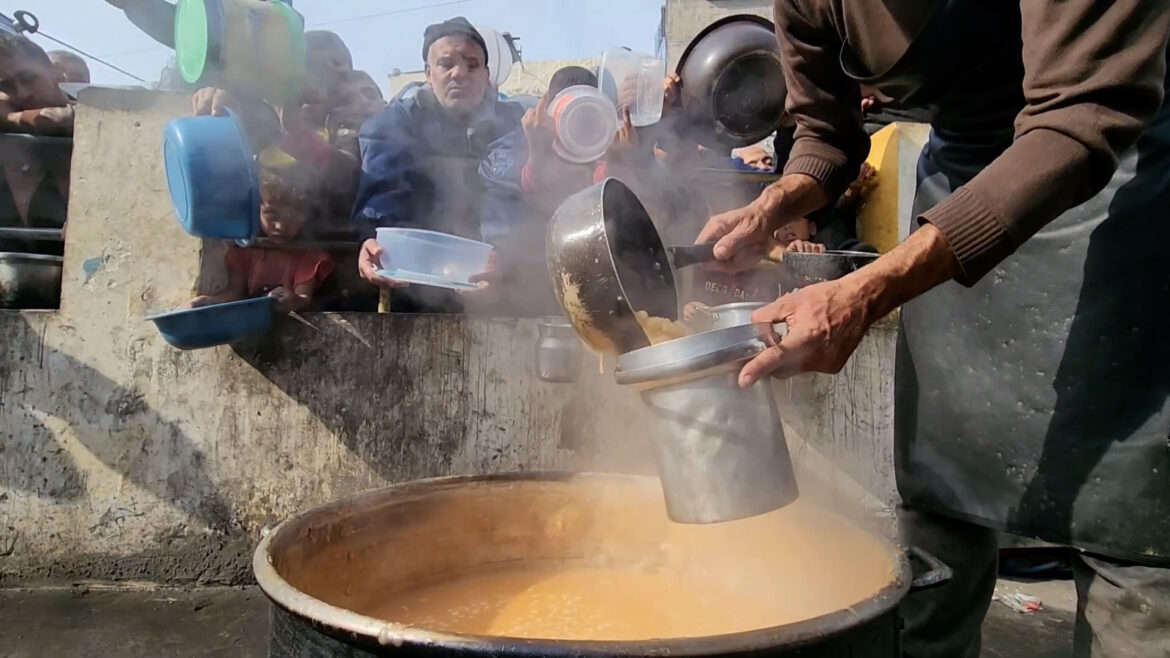Tel Aviv Tribune Net correspondents
Gaza- In contrast to the ugly face of the Israeli war in its fourth month on the Gaza Strip, and its negative repercussions on all aspects of life, Palestinians show a good face through free charitable initiatives that contribute to alleviating the impact of the war on vulnerable groups, especially the displaced who left their homes and possessions and lack the basic necessities of life in tents and centers. Shelter.
Ahmed Sheikh Eid found in “Al-Takiya” – an initiative to prepare and distribute food for free – an appropriate way to express his solidarity with the hundreds of thousands of displaced people who are crowded in the city of Rafah, the southernmost part of the Strip on the border with Egypt.
Sheikh Eid uses the Al-Shaboura refugee camp, which is crowded with its residents and displaced people, as a place for the hospice, which is visited daily by large crowds of the camp’s poor and those displaced to it, to obtain a meal that will support them in the severe hunger that is widespread on a large scale, as a result of the repercussions of the aggression and the applied Israeli siege.
Estimates of the United Nations Relief and Works Agency for Palestine Refugees (UNRWA) indicate that the humanitarian aid received in the Gaza Strip only meets 5% of the population’s needs.
Sadness, hunger and thirst
With words dripping with sadness due to hunger and thirst, Amna Hamoud, who was displaced from the north of the Gaza Strip to Rafah, expressed the miserable life that her large family is living. She took her place in a long line in front of the hospice to obtain a small amount of food to satisfy their hunger.
In the displaced persons’ tents spread out as far as the eye could see in the west of the city, a solar panel to generate energy was a haven for the displaced to charge their mobile phones and small batteries to provide lighting at night inside the tents.
The owner of this initiative, Osama Younis – a displaced person from the northern Gaza Strip – says that he brought this solar panel with him and was aware of its value in light of the electricity and fuel crises, and that he feels very happy for his small contribution to alleviating the suffering of displaced people like him.
Among these displaced people is Hussein Bakr – whose family was displaced from Al-Shati camp, west of Gaza City – he praises Younis’ initiative and says that it provided him and the displaced with charging phones that enable them – despite the difficulty of communications – to communicate and check on family and friends who were separated by the war and forced them to flee in different areas of the south. sector.
Local and international estimates indicate that out of 2.2 million Palestinians from Gaza, the Israeli war forced about 85% of them to evacuate their homes and residential areas, and that about half of the population took refuge in the city of Rafah, which is suffering from a population explosion and a collapse in vital facilities and services.



